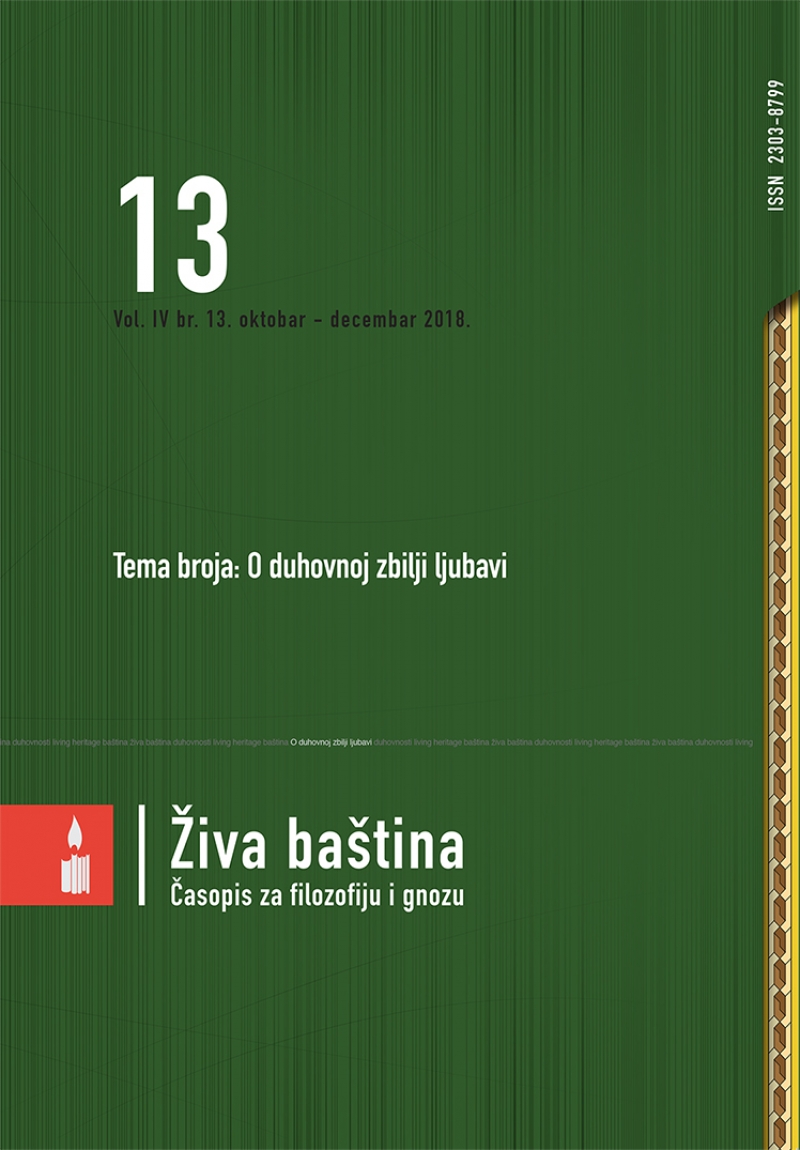Suhrawardijevo poimanje ljubavi u traktatu Fī haqīqat al-ešq
Suhrawardi’s perception of love
Author(s): Saeid AbedpourSubject(s): Philosophy, Metaphysics, Epistemology, Theology and Religion
Published by: Fondacija “Baština duhovnosti”
Keywords: the treatise “Fī haqīqat al-‘ishq”; Suhrawardi; love; gnosis; philosophy; beauty; sorrow;
Summary/Abstract: Shihāb al-Dīn Yahyā ibn Habash ibn Amīrak Abu al-Futūh Suhrawardī, known as Shihābuddīn, Sheikh al-Ishrāq, al-Sheikh al-maqtūl (the murdered sheikh) and Sheikh of shahids (1154-1191/549-587 A.H.), while discussing beauty (husn), love (‘ishq) and sorrow (huzn) in his well-known treatise Fī haqīqat al-‘ishq (On the reality of love), actually reveals the secret of the creation of beauty, but also the reality of love and sorrow. According to Suhrawardi, the source of this trilogy, i.e. beauty, love and sorrow is in the beyondness and all three emanate from the Universal Intellect. In fact, these are the three divine principles which are mentioned once in the story about Adam and the angels, and for the second time in a more complete form in the story about Yusuf, Yaqub and Zulaykha. These three aspects, i.e. beauty, love and sorrow, are independent divine essences. Their existence is not material and their meanings are not confined to a mere mental level.Suhrawardi believes that the first existence or the first creature of the peripatetic and Aristotelian philosophy is the shining jewel of Intellect. This interpretation is based on the following tradition: “The first that Allah created was Intellect.” The trilogy: beauty, love and sorrow, therefore, arose from the Universal Intellect and the First Intellect. This shining jewel of Intellect was bestowed by God the Exalted with three attributes: the cognition of God, the cognition of self and the cognition of that which had not existed and then came to existence. In the peripatetic philosophy of Ibn Sina every intellect has three aspects: necessity due to itself, necessity due to what is other then itself and contingency due to itself. Through these three aspects the multitude of this world is observed.
Journal: Živa baština: časopis za filozofiju i gnozu
- Issue Year: 4/2019
- Issue No: 13
- Page Range: 38-47
- Page Count: 10
- Language: Bosnian, Croatian, Serbian

